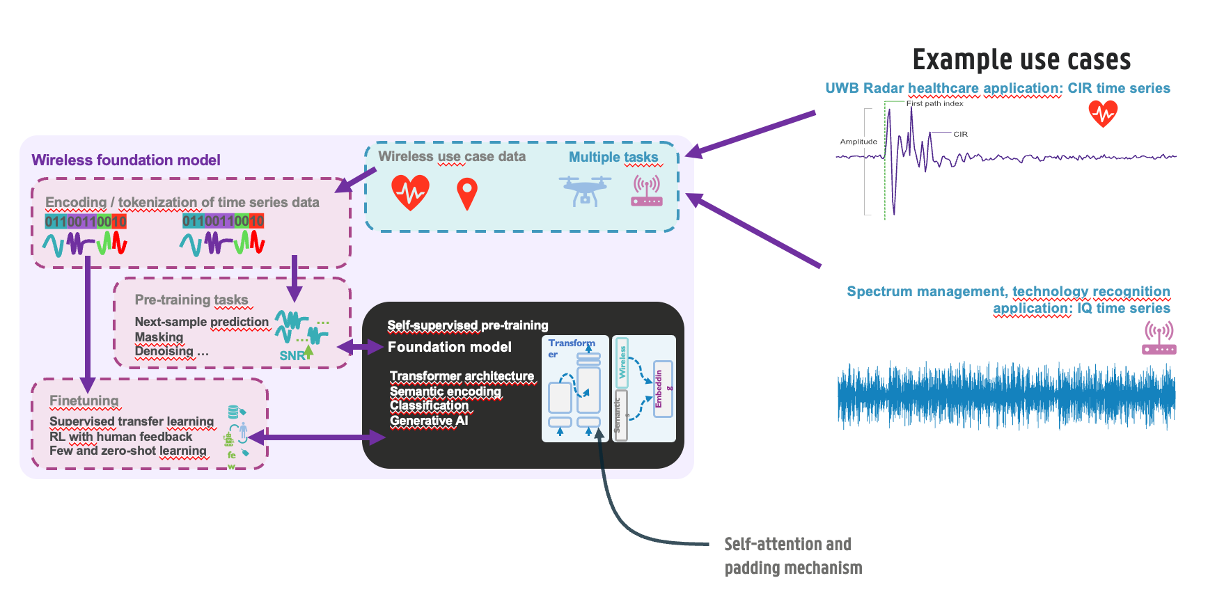Wireless Foundation Models for next generation wireless networks
PhD - Leuven | More than two weeks ago
Artificial intelligence (AI) plays a crucial role in the dynamic landscape of wireless communications, addressing challenges that traditional approaches cannot solve. This PhD topic will explore the evolution of Wireless AI, focusing on the transition from isolated, task-specific models to more generalizable and adaptable AI models inspired by recent successes in large language models (LLMs) and computer vision. A unified Wireless Foundation Model is essential to surpass task-specific AI strategies in wireless networks.
Wireless Foundation Models, trained on diverse wireless data—including RF signals, images, sound, radar, and more—can be fine-tuned to perform various downstream tasks such as beam management, resource management, power management, modulation selection, environmental monitoring, vital sign monitoring, and others. Several challenges exist in realizing the vision of Wireless Foundation Models, such as designing effective pre-training tasks, supporting the embedding of heterogeneous time series, and enabling human-understandable interaction. Furthermore, it is crucial for Wireless Foundation Models to interact with LLMs, which can assist in extracting metadata (such as classifications, semantic descriptions of wireless network conditions, sensing applications, human behavior, etc.) from these models. This integration with LLMs can lead to the continuous optimization of wireless networks.
The goal of this PhD is to investigate Wireless Foundation Models by training transformers with various multi-modal wireless data—including RF signals, images, and radar—and fine-tuning these models for multiple downstream tasks, such as beam management, resource management, interference detection, environment characterization, and activity recognition. The selected PhD candidate will be part of a large IMEC team (Advanced RF and AI/ML for Wireless) and will have access to state-of-the-art infrastructure for capturing wireless data in various conditions and training large AI/ML models on high-performance GPUs.

Required background: Electrical Engineering, Computer Science, Signal Processing for Communications, Machine Learning and Artificial Intelligence
Type of work: 80% design/modeling/simulation, 10% experimental and 10% literature
Supervisor: Adnan Shahid
Co-supervisor: Eli De Poorter
Daily advisor: Mamoun Guenach
The reference code for this position is 2025-082. Mention this reference code on your application form.
